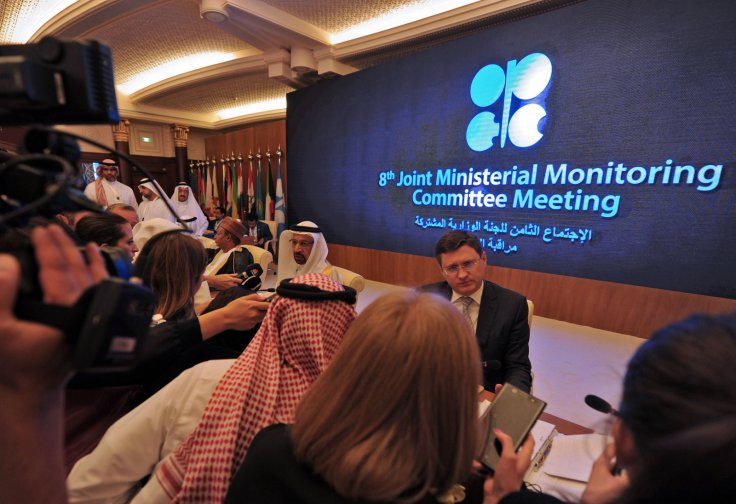Iran rebuffs Trump's call for OPEC to increase oil output
The OPEC oil ministers began arriving in Vienna on Tuesday ahead of their official meeting Friday, which will also include discussions with Russia.
Iran lashed out Tuesday against U.S. President Donald Trump's call on OPEC to increase oil production and limit global energy prices, saying the cartel "is not an American organization."
The OPEC oil ministers began arriving in Vienna on Tuesday ahead of their official meeting Friday, when they will also confer with Russia, a non-OPEC country that since late 2016 has cooperated with the cartel to limit production.
Analysts expect the group to consider an increase in production of about 1 million barrels a day, ending the output cut agreed on in 2016.
The cut has since then pushed up the price of crude oil by about 50 percent. The U.S. benchmark in May hit its highest level in three and half years, at $72.35 a barrel. That prompted Trump to call on OPEC to cut production, tweeting in April and again this month that "OPEC is at it again" by allowing oil prices to rise.
Iran's oil minister, Bijan Namdar Zanganeh, said upon arriving in Vienna that "OPEC is not an organization to receive the instruction from President Trump and follow it."
Underscoring how difficult the discussion about a production increase will be, Zanganeh said that Trump's comments have cast doubt on the prospect of a deal.
"Every decision in OPEC needs the unanimity and I don't believe in this meeting we can reach agreement," he said, adding the issue "has been politicized by President Trump."
Experts like Michael Hewson, chief market analyst at CMC Markets U.K., note that the price of oil is high not only because of OPEC and Russia's agreement to limit output, but also because of Trump's policies, including a decision to reinstall sanctions on Iran. That crimped the country's ability to export crude, limiting supply and pushing up global prices.

The U.S. sanctions on Iran also mean that if OPEC agrees on an increase in output as a group, Iran will be one of the countries to lose out, as it will not be able to export as much as it would like.
By contrast, Saudi Arabia, the cartel's biggest producer and a fierce regional rival to Iran, could have the room to increase output more — and make more money — to make up for the shortfall in countries like Iran.
So an OPEC deal to increase output could also influence the balance of power in the Middle East.
Iraq's oil minister, Jabbar Ali Hussein Al-Luiebi, sounded more optimistic about a deal, saying "we are after the stabilization of the market."
Ultimately, Hewson says, the 14 countries in the Organization of the Petroleum Exporting Countries are likely to agree on a production increase.
"There is an element of self-preservation in seeking to do this, as while most oil producers prefer higher prices they will also want to avoid a scenario where prices reach a level where demand drops off sharply, thus triggering a global slowdown, as well as accelerating the push for renewable (energy)," he said.
© Copyright IBTimes 2025. All rights reserved.





















